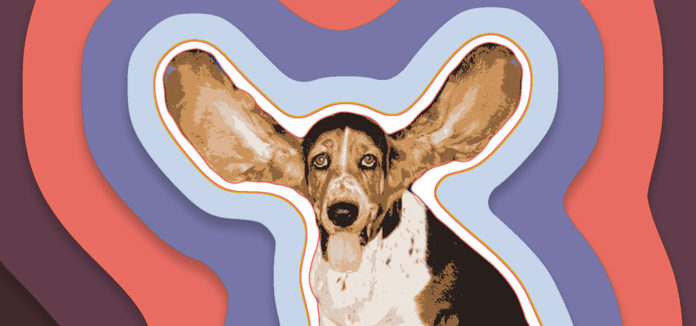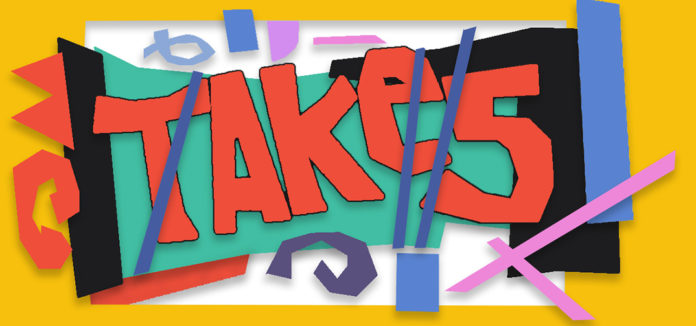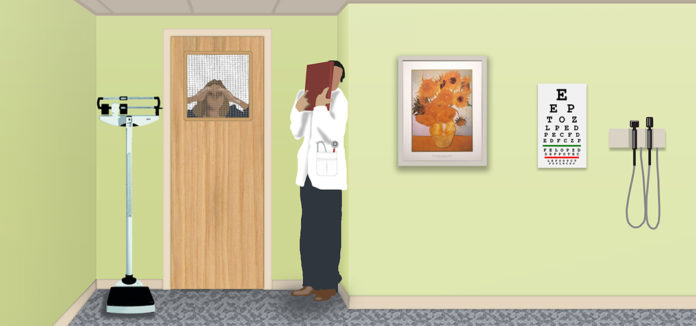Father, Writer, Dilettante.
SMOOTH TALKERS, LISTEN UP
“Speak up,” adults tell their children. From an early age, we’re taught the importance of saying what we think loudly and clearly. The lesson is, if you want to make a point, your voice needs to be heard.
Less focused upon and arguably far more important is learning how to listen….really listen.
Genuine listeners have a quite power and charisma. People gravitate towards them. As Dr. Karl Menninger observed:
Listening is a magnetic thing, a strange and creative force. The people who listen to us are the ones we move toward. When we are listened to, it makes us unfold and expand.
New research highlights why being a good listener may be more advantageous than being a smooth talker. According to a recent study, good listening skills have a bigger impact on influencing others than verbal communication. In other words, if you want to persuade someone of something, say less and listen more.
Here are four ways to hone your listening skills:
Active Listening
Paraphrase, clarify and offer feedback on what your conversation partner just said to you. And that doesn’t mean “uh-huh” or “yeah” or “I get it,” which are code for “I wasn’t totally listening.” The key to active listening it to let the other person know you’re engaged. Paraphrasing let’s them know you’re absorbing what they’re saying. Asking for clarification offers them an opportunity to get their message across as clearly as possible. And non-judgmental feedback shows them you care.
Empathetic Listening
Listening is more than just registering words. Search for the other person’s thoughts and feelings, the subtext, to truly understand what they’re saying.
Open Communication
Try to not interrupt the other person and let them finish each and every statement. If it’s required, let yourself be vulnerable to the other person’s message. It will ensure the conversation is one that’s open, honest and productive.
Total Listening
Consistent eye contact and positive body language sends the message that you’re really hearing them. Staying away from distractions and keeping distractions away — your vibrating cellphone, the TV flickering across the other room, the bit of lint you noticed on your sweater — let’s them know that what they’re saying is important to you, you’re engrossed and you care.
A recent Harvard Business Review article sums it up best:
While many of us have thought of being a good listener being like a sponge that accurately absorbs what the other person is saying, instead, what these findings show is that good listeners are like trampolines. They are someone you can bounce ideas off of — and rather than absorbing your ideas and energy, they amplify, energize, and clarify your thinking. They make you feel better not merely passively absorbing, but by actively supporting. This lets you gain energy and height, just like someone jumping on a trampoline.
Bounce Away.
I wish you all the best,
Dr. Samantha Boardman
TAKE 5: NOT JUST A JAZZ STANDARD — A LIFE STANDARD
Karen Warner, is Chief Executive and Managing Partner of Tangible Group, which offers consulting and coaching services to Fortune 1000 companies to improve performance and leadership. She shared a popular activity she leads in her workshops, and true to her generous spirit, she is sharing it with us at Positive Prescription.
The idea is to carve out five minutes of peace at the beginning of each day, giving one minute to each activity listed below. Each one begins with a question and is followed by an action step. Do it every morning.
1. Time: 0:01
Question: Am I grouchy or cheery?
Action: Adjust your starting point.
2. Time: 0:02
Question: Who or what do I take for granted?
Action: Actively appreciate.
3. Time: 0:03
Question: How will I get some exercise?
Action: Go outside and play.
4. Time: 0:04
Question: What three goals can I accomplish today?
Action: Anticipate great outcomes.
5. Time: 0:05
Question: Who needs my help today?
Action: Reach out right away.
Following these five steps, you can create the day, the life, and the world you want for yourself and those you spend your time with.
Her company is called Tangible, but this gift is immeasurable.
I wish you all the best,
Dr. Samantha Boardman
What Are the Three Key Ingredients of a Good Day?
I recently came across a paper outlining the three key ingredients to a day well spent:
1. Do Something Alone
Such as reading, listening to music, or meditating
2. Do Something with Others
Such as going out for coffee, riding your bike, or watching a movie
3. Do Something Meaningful
Such as volunteering, helping a neighbor in need, or calling a friend who’s struggling.
The key is making the effort to do it intentionally, note authors Christopher Peterson, Martin Seligman and Nanook Park in their paper “Orientations to Happiness and Life Satisfaction: The Good Life versus the Empty Life.”
Even suicidal psychiatric patients were found to benefit from doing this exercise and reported more optimism and less hopelessness afterward.
When I was in boarding school, the headmaster would announce a surprise holiday once a semester. The entire school would be sitting in Chapel, ready for a regular day of class, and he would ask us to turn to a certain page in the Prayer Book and read a prayer about the importance of play. We all knew what that prayer meant—classes were cancelled and we were free to do as we pleased. It was the best feeling in the world. We attended class six days a week so a day off was beyond precious. The best part was that we had done all our homework the night before. The day belonged to us.
Those days were like gold. Every minute counted. I spent time with friends; I read books or listened to music, and I wrote at least one letter to my parents, grandmother or sister. It was a day well spent. Looking back I know why—it was filled with meaning, engagement and connection.
As an adult, it is challenging to build those ingredients into each day but it is possible. Now, go ahead and make your day.
I wish you all the best,
Dr. Samantha Boardman
The Patients Doctors Dread
Most doctors have a great deal of affection for their patients but, truth be told, this is not always the case. “Admitted or not, the fact remains that a few patients kindle aversion, fear, despair, or even downright malice in their doctors,” Dr. James Groves wrote in a seminal 1978 paper entitled “Taking Care of the Hateful Patient” published in the New England Journal of Medicine. He went on to further explore the uncomfortable reality that doctors sometimes harbor negative feelings towards patients.
Dr. Gross was not referring to the occasional personality clash—he was talking about patients who are, quite frankly, difficult to deal with. They are the ones most physicians see in the schedule and dread. Gross divided these challenging patients into four groups:
1. Dependent Clingers
Dependent Clingers have a relentless need for attention and reassurance. No matter how much time and energy a doctor gives them, it is never enough. They exhaust the doctor with endless phone calls and questions — which have usually been covered already. These patients have no boundaries and try to reach the doctor at any time day or night and disregard on-call protocals. “Whatever their medical problems, what is common to them as a group is their… bottomless need.”
2. Entitled Demanders
Entitled Demanders are like Dependent Clingers in terms of their neediness but are more overtly and obnoxiously demanding. They become hostile when they do not get what they want. Intimidation and devaluation are their go-to strategies. Typical behaviors include threatening legal action, damaging the doctor’s reputation and withholding payment if the doctor isn’t complying with their stipulations.
3. Manipulative Help-Rejecters
Manipulative Help-Rejecters are the patients who feel that nothing and nobody can help them. As Gross observes: “Appearing almost smugly satisfied, they return again and again to the office or clinic to report that, once again, the regimen did not work. Their pessimism and tenacious nay-saying appear to increase in direct proportion to the physician’s efforts and enthusiasm.”
4. Self-destructive Deniers
Self-destructive deniers seem to revel in self-destruction. “They appear to find their main pleasure in furiously defeating the physician’s attempts to preserve their lives,” writes Gross. They have given up hope and don’t seem to care about the havoc their behavior wreaks on themselves and those around them.
Dependent Clingers, Entitled Demanders, Manipulative Help-Rejecters and Self-Destructive Deniers elicit intense negative feeling in doctors—loathing, aversion, avoidance, anger, anxiety, inadequacy, fear, indifference, and even malice—that cannot be wished away or ignored. Instead of wasting precious energy trying to suppress uncomfortable feelings or allowing hostile emotions to impact quality of care, Gross argues that doctors should pay attention to their feelings and learn from them.
“The physician’s negative reactions constitute important clinical data that should facilitate better understanding.” In other words, it can provide valuable information and helpful clues about what makes a patient tick from which a doctor can gain insight about the patient’s underlying needs and motivations.
For example, a feeling of aversion towards a clingy patient is a sign it is time to set firm boundaries. A doctor’s feeling of helplessness and inadequacy towards a help-rejecting patient might be a sign of the patient’s intense fear of abandonment. As Gross concludes, “What the behaviors of such patients teach over time is that it is not how one feels about them that is most important in their care. It is how one behaves toward them.”
The four types mentioned above are probably negative emotions, that can be thought of as data points for everyone, not just doctors. When you reframe feelings like anger, disappointment, and frustration, as information and not something to be acted upon or swept under the rug, you defang their power.
I wish you all the best,
Dr. Samantha Boardman







